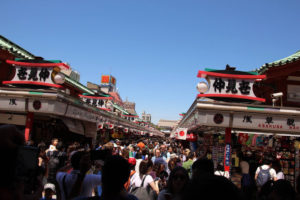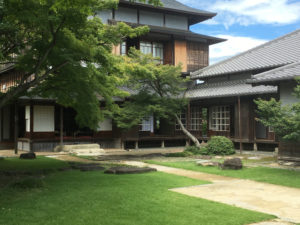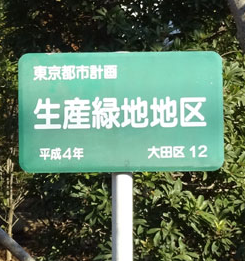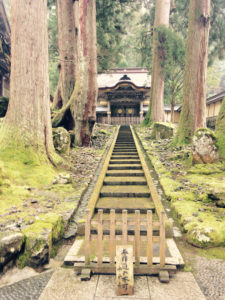Here is an idea worth considering. Imagine being able to get Japan’s new green card only in a year.
Japan needs more skilled foreign workers.
To attract more foreign workers, Japanese government relaxed requirements for permanent residency (so-called green card) last April (2018)
Before relaxing the requirement, high skilled professional (HSP) workers had to stay in Japan for at least five years before applying for green card, but now just one year is required.
In fact, it is the fastest green card system in the developed countries.
Some pundits are saying relaxed law will bring more foreign high skilled workers but whether it will be a game-changer remains to be seen.
Japan is also said to be a tough country for foreign workers to live due to the very unique traditions such as corporate culture and seniority system, which is another hurdle to clear even after obtaining the green card.
In 2012, Japan introduced a point system for skilled workers. The points are given based on individual backgrounds, including business experience, income, Japanese-language fluency and academic degrees. The system is intended to give preferential status to such skilled workers, including a shortened path for permanent residency. When the system was enacted, those who had 70 points or more could apply for green card after five years. Normally, it takes 10 years to apply for the status.
Special Topics
Fast track for permanent residency for highly skilled foreigners :Japan’s Groundbreaking New Green Card system

Japan dramatically relaxed Green Card system !
Bold new opportunity to obtain Japan’s new Green Card.
Are you interested in Japanese Green Card with Japan’s social security and universal healthcare service ?
Here is what you should do.
Invest in the property here and get the ‘business manager’ status.
Japan is facing the acute shortage of workforce.
To address the issue, Prime Minister Abe has been drastically relaxing the immigration control for both low skilled workers and high skilled professionals.
Japan needs both low skilled workers as well as advanced skilled managers.
There is a new visa category called Highly-Skilled Professionals (HSP).This new category was relaxed dramatically last year and now Japanese government is offering preferential treatment for the category, which makes applicants much easier to apply for the so-called
‘GREEN CARD’.

In this relaxed category, HSP can apply for ‘GREEN CARD’ earliest within ONE YEAR (subject to your points) after you
get status of HSP. The Green Card application procedure is based on the points-based system.
The new approach follows the government’s introduction of a point system for highly skilled professionals in 2012.
Under this system, people are scored according to factors such as academic background, career background and annual salary, and are categorized under the field of “academic research,” “technical activities,” or “business management.”Read more
How do you eat ramen ? -Japanese multicultural management –

I am a licensed property broker but occasionally offered the work for the trainer who teaches the multicultural management in large Japanese corporations.
I do enjoy working as a trainer because interaction with students (workers at large corporations) is always inspiring.
Today I am going to depart from the real estate and write a light note about one of my favorite TV shows in Japan and try to give you kind of funny way of multicultural management tactics in Japan.
First of all, I don’t usually watch TV.
Why ?
1. Don’t have time to watch.
2. don’t want to spend my precious time on silly programs.
3. Generally speaking, quality of TV programs in Japan has been deteriorating significantly over years and there is not many program worth watching. (Maybe I am just getting old ?)
And yet, I do like one documentary show called ‘Youは何しに日本へ?’ (Why did you come to Japan ?) broadcasted by TV Tokyo every Monday from 6:55 pm.
(Please check your local station which is affiliated with TV Tokyo if you live
outside Tokyo)
In this show, TV Tokyo crews interview foreigners at the airport where most visitors first arrive in Japan, with no appointments. Not just at the airport, sometimes at sea ports or events, everywhere crews go there are on-the-spot interviews with no appointments (so they say anyway)
And they often find a treasure trove of funny and interesting foreigners.
It is a new type of TV document variety show with many unexpected things.
They asked tourists for the interview on the spot. It could be half-staged but looks pretty real.
Dozens of foreign tourists are interviewed and eventually a couple of persons or group are picked up
for detailed interview.
Selected tourists for in depth interviews are usually Otaku (geeks) type of people and not usual tourists.
They come to Japan for variety and yet very intriguing reasons such as eating okonomiyaki (Japanese pizza), seeing host family in Japan, learning ‘No’ play (traditional masked dance-drama)
4-day training camp of “Kenbu Tenshin-Ryu” (traditional martial arts), kimono gigs, Japanese swords fan etc etc. One episode is about a woman from America and she’s a big fan “Sailormoon” and has come to Japan to become a voice actress.Read more
What is the 2022 problem in Tokyo property market ?

Some critics in the industry are predicting the price of condominiums in Tokyo shall drop soon simply because they are too expensive for people to buy.
According to Nikkei in December 2017, the average price of a newly built condo in the capital region — Tokyo and the surrounding prefectures of Kanagawa, Saitama
and Chiba — rose 7.6% in 2017 to 59.08 million yen ($533,000).That was higher than the average in 1989 and 1991 and the second-highest level ever,
trailing only the 1990 record by 2.15 million yen.
Are condominiums really too expensive ? Are those critics are right ?
We need a crystal ball to predict the future
but today I am going to discuss the reason why the price of condominiums may go down.
Personally though, I am still mildly bullish about the market right now due the global aspect (see below UBS report)
and the healthy growth of the secondhand condominium market.
It is always to good to listen to the people with different opinions.
Let’s listen to what critics have to say.
We saw the condominiums developers go bankrupt one after another in the recession after the global financial crisis in 2008.
Nonetheless, the current price of newly built condominiums in greater Tokyo area has risen up sharply over several years and they are becoming more and more unaffordable for average salaried workers.
In the latest Tokyo kantei report in 2017, the average price of new condominiums are about 8-10 times higher than average annual income of the skilled workers in greater Tokyo area.(vs. 14 times in London)
London house price
The reason for raising is not because real demand is strong because everyone wants to buy them.
Read more
How is Japan population evolving in terms of the real estate investment ? – Intra migration dynamics-
Overall, Japan looks to be shrinking but big cities are expanding.
How does it have an implication on the real estate in Japan.
I have been hearing a question repeatedly from a number of my
foreign friends (and Japanese friends, too), that is “Why do you
want to invest in the property in a country where the
population is decreasing ?”
It is very true that overall Japan is shrinking but when it comes to the real
estate investment such naive macro view could mislead your decision.
The population growth is one of the biggest factors in the property
investment in deed and a growing population should give you the opportunity
to raise rents over time and also should enhance values of your property.
However you need to see the numbers in depth.
The Japanese Government recently announced the official intra
population movement report(statistics of intra-prefecture migration)
in 2017.
Based on the investors view, here are your takeaways from the announcement.
1. Tokyo area (greater Tokyo) won’t stop growing
According to the report, the greater Tokyo area (Tokyo, Saitama, Chiba, Kanagawa)
was in “net surplus” in which the number of the net inflows stands at 117,779.
Net surplus (net increase of the population) in the greater Tokyo area has posted
for 22 consecutive years, net surplus number (growth) has also
increased since 2009.
Looking at the each number of domestic migration by prefecture in 2017,
only seven prefectures of Tokyo, Chiba, Saitama, Kanagawa, Fukuoka, Aichi
and Osaka are in net surplus. The largest number of net inflow is shown in Tokyo
as prefecture (net 75,598 surplus), followed by 16,303 in Chiba and 10,423 in Saitama.
You can find the stark contrast among the prefectures in the following chart
which was published by Statistics Bureau of ministry of the internal affairs
and communications on January 29, 2018. Read more


